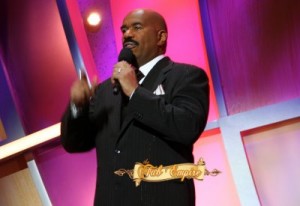By Shawn Brown
“Love is patient, love is kind.
It does not envy.
Love is never boastful, nor conceited, nor rude;
It is not self-seeking, nor easily angered.
It keeps no record of wrongdoing.
It does not delight in evil,
But rejoices in the truth.
It always protects, trusts, hopes, and preserves.
1 Corinthians 13:4-7
Seldom have more beautiful words been written. To my mind, these few lines are amongst the greatest poetry ever conceived. Humanity has rarely achieved the level of insight contained in these simple words. So profound are these words that if we could, for a moment, free ourselves from the dialectic between faith and reason we would applaud them.
We do not experience anything as deeply absorbing as love. Nothing wraps itself around us, nor runs through us like love. There is nothing in the known universe as powerful as the true love of one human for another. It is the most radical and transformative of all human emotions. It is singular. Love is greater than euphoria; love is greater than courage; love is greater than anger; love is greater than fear; love is greater even than hate. Love commands all emotion, and, when genuinely present, she will summon or dismiss them all at will.
It is humanistic love, and not that of a God, which has elevated us from the lower ranks of the animal kingdom. Love is the preface to humanity’s story.
The writer of first Corinthians may be insightful, but he is not original. It is not the tone or tenor of these words which are not original, but the underlying idea. No matter how poetically pleasing these words are- they are not philosophically original. Neither is the bible’s treatment of love in any other place. Given love’s divine origin, how could this be?
Proudly, it is we who have invented love. We gave birth to her deep in our evolutionary past. We fed love; we taught love to stand; we showed love how to walk; and, finally, we taught her our mother tongue- perseverance. Since then she has spoken unashamedly down the ages.
Theism, and in particular Christianity, often claim the high ground of love. Followers bandy the word about, insinuating that there is no truer love than that experienced in the religious context. In the theistic mind love is a gift from God. How pathetic. How revealing of our conditioned self-loathing. How disrespectful of our ancestors. While we should not compete over ownership of love, we can make clear our understanding of its nature. Whether, because the world has tended to view theism as the standard bearer of love, or because we thought other things more important, the freethinking community has not paid enough attention to love.
I do not mean that we have failed to love, but that we have not spent enough time speaking about love. We have not spent enough time communicating our understanding of the importance of love. This is sad given the deep commitment to love that most freethinkers exhibit through their humanistic principles.
Traditionally, science has been the bellwether of the freethinking community. We have relied upon science as our gladiator in the battle with superstition. After all, this makes sense; it is science which has told us of human origins and even the origin of the universe. It is science which lifted humanity from the ignorance of our unenlightened past. It is science which has allowed us to understand ourselves in a truer and clearer way.
Scientific advancement is the story of human advancement. Scientific progress has rescued us from our own primitive impulses. But, before there was science there was love. Science is humanity’s most reliable methodology. Love is humanity’s essence.
We have hidden behind science, foolishly believing that it could tell the entire story of us. There is a beauty in science and it has liberated many people, but the battle between progress and superstition is too big for science alone to win. Science needs an ally. As freethinking icon Zora Neale Hurston once put it: “Love makes your soul crawl out of its hiding place.” We must stop hiding behind science and let our souls crawl out.
Advancement of freethinking principles will be made through our substantive commitment to a humanistic vision. A vision which can only be crystallized through the prism of love. Science is indeed the truest language in the universe, but love is the only language which all of humanity understands. We must embrace it enthusiastically. After all love is not a religious meme, but the muse of a once low animal which has elevated itself above all others.
Love is the fuel of human ascension, and not that of a previously earthbound messiah. It was love of one’s family that inspired our ancestors to stop following wild game and attempt to grow crops from the earth, thereby, giving ourselves a more dependable food source. From that development arose modern society, an idea which, while covered in sores, has allowed us to live longer and less brutish lives. As Robert Browning wrote so long ago; “[t]ake away love and our earth is a tomb.”
The freethinking community must relate to the world first through our love. We must show that we understand that humanity is more than an amalgamation of cells, but a repository of ideas, emotions and needs. We are measurable by science, but science is not our full measure.
If we are to convince the world of our rightness, we have to become comfortable with love. On the facts alone we have rarely lost, but, on the deeper understanding of the human psyche the question has been much closer. Religion knows nothing of our origins, and admitted as much when it told us lies of talking snakes and magic apples. But, it still garners more trust than we? Why? Because, we have not dared to push beyond our comfort zone. If the freethinking community could accept that most people are less concerned with the origin of life, than with how to fill their lives with meaning, a revolution would be at hand. Questions of meaning require answers based in love.
If we profess humanism, then let us address the full scope of humanity. This means accepting that it is love- most of all- that makes a human what she is. This means understanding that our scientific efforts are only for the edification of a being which is defined by love. And, that science is, like all other disciplines, in the service of humanistic love. Science is what taught us to build cities, but love is what makes us worthy to live in them.
“In a word, there are three things that last forever:
Faith, hope, and love;
But the greatest of them all is love.”
–1 Corinthians 13:13
Even as a skeptic, I am not afraid to accept these words as true and neither should you be. Gladly, in so doing, I need not accept the wrong headed assumption that love is supernatural. It is not the gift of a benevolent God to a pitiful humanity. Love is, however, a gift from our ancestors for the exaltation of humanity. Love is humanity’s child.
Shawn Brown is an attorney who has studied law both in the United States and England. He has been a freethinker for several years and currently resides in the southwestern United States.










